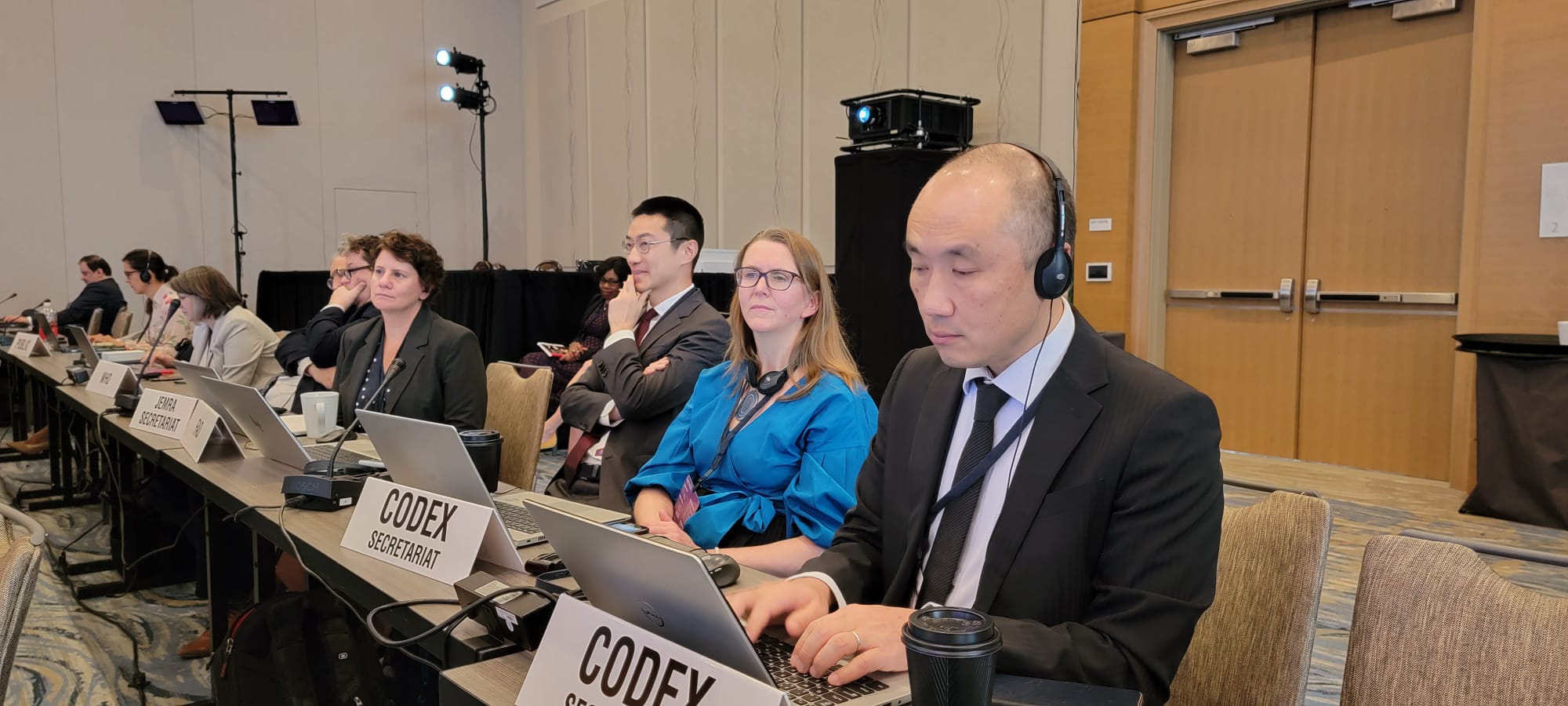The CCNASWP Region
Regional Coordinator Fiji
The 18th session of the Codex Alimentarius Commission, held in 1989, agreed to establish a new Coordinating Committee for North America and the South West Pacific, bringing together, in the words of the New Zealand delegation "far flung countries ... which have many common interests".
CCNASWP is a remarkably diverse region combining fully mature economies such as the USA, Canada, Australia and New Zealand with 10 small island states. The largest of these is Papua New Guinea (population over 7 million) and the smallest, the Cook Islands and Nauru with populations of around 10 000.
The regional coordinator is based within the Fijian Ministry of Agriculture.
Fiji looks forward to applying standards at the national level and supporting all countries in the region, especially the small island developing states, to establish a sound policy framework for food safety. These initiatives will support improvements in public health, ensure that imported food is safe and of the expected quality and develop increased access to international markets.
The regional coordinator will continue supporting work on regional standards and seeks to strengthen participation of the region in Codex in general. This can be achieved by continuing to develop capacity at the national level by enhancing the role of national coordinators and contact points for increased and effective participation in Codex.
CCNASWP Coordinator
All information on Codex is public and free.
For regional enquiries contact:
CCNASWP Secretariat
Ministry of Agriculture
Private Mail Bag
Hugh Robinson Complex
Raiwaqa,
Suva.
Email: [email protected]
Web: www.agriculture.gov.fj
Codex never stops / at the food hygiene committee physical is imitating virtual
Virtual meetings have given us the possibility to hop, skip and jump from one continent and one subject to another just with the right link and the copy and paste of a passcode. So it must have come as a shock to some delegates at the current session of the Codex Committee on Food Hygiene (CCFH) when they had to pack their bags in Rome on Friday as the Codex Alimentarius Commission (CAC) ended and be 10 000 km away, bright eyed and bushy tailed, at 14.00 (UTC-8) on Sunday in San Diego, California in time for the first technical working group on Shiga toxin-producing Escherichia coli – or STEC.
Chairperson Emilio Esteban, United States of America said: “Jet lag has been taken care off by getting early sessions at the gym and lots of coffee. It was an easy transition as once you are mentally in Codex 'brain mode' there is common language and procedure. Even my baggage arrived with me.”
“It was pretty easy to switch from the strategic issues discussed at CAC to the technical agenda of CCFH’” said Mirian Bueno, Honduras. “As soon as I had my registration badge and our first meeting with the Chair, the Secretariat, and JEMRA [microbiological risk assessment experts], it got as technical as it can be.”
For Risto Holma of the European Union “It’s a relief to focus on technical issues after the rather heated discussions in CAC.” Still suffering from jetlag, it was “good to see colleagues in person,” he said.
Australia’s Scott Mersch took positives from the long journey; “It was a great opportunity to finally watch Top Gun: Maverick.” On a more serious note, Mersch is following the session along with his technical food hygiene experts but his main focus from a Host Secretariat point of view is “on the running of the event to learn as much as possible ahead of hosting CCFICS26 in Hobart, Australia in May 2023.”

Sarah Cahill (second right) with Goro Maruno from the Codex Secretariat
With a meeting of a Codex regional committee in Quito, Ecuador, followed by the Executive Committee and the Commission in Rome, and now San Diego, the Codex Secretariat has been pushed to the limit. Sarah Cahill has led work at all four Codex meetings. “The transition to technical issues is not so easy as we are still in the process of finalizing the report of CAC. So while I am diving into CCFH, there is still a part of my brain in the Commission.” However she welcomed the experiment with another meeting modality and with the Californian sun shining said, “it is great to see all the CCFH delegates in person again.”
Mary Frances Lowe was head of the United States delegation at CAC. “It is exciting to welcome delegates to San Diego after such a long hiatus, and a great pleasure to see our CCFH colleagues again. We are also happy to offer webcasting, so that those who were not able to travel can follow the session in real time.”
There is an awareness within the host country Secretariat that countries faced difficulties in arranging travel and some delegates who would have liked to attend both CCFH53 and CAC45 were unable to do so. “We hope host countries and the Codex Secretariat can work together to avoid back-to-back Codex sessions in the future,” said Lowe.
Because although Zoom and Teams can cope, it is uncertain whether delegates and the Codex Secretariat can keep up this pace.
Lean more
All sessions available as webcasts or audio files on the CCFH53 meeting page.
Photo credit ©Ken Lowery







Leave a comment